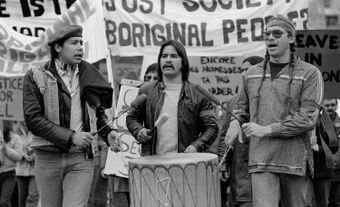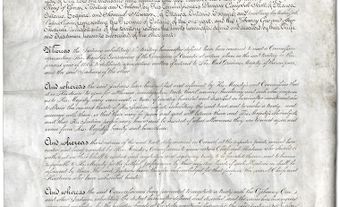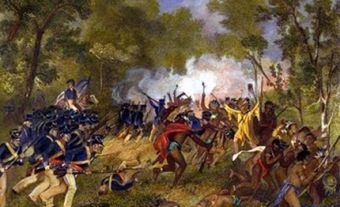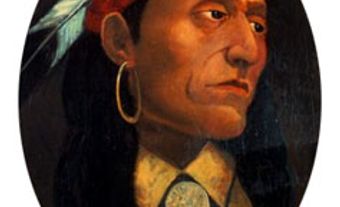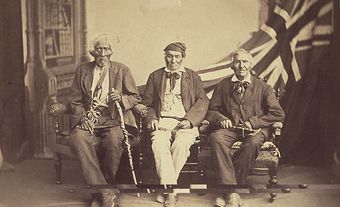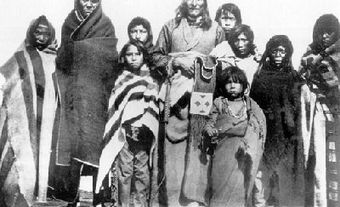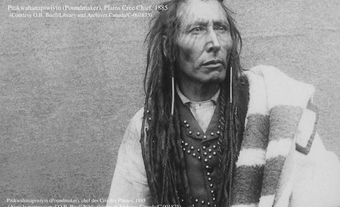Background
In late July 1766 a great council convened at Fort Ontario (Oswego), deep in Seneca country on the southeast shore of Lake Ontario. A weary superintendent of Indian Affairs William Johnson had called together the chiefs of the Great Lakes nations in order to find an end to the war.
It had not gone well for the British. A loose coalition of Indigenous nations in the Great Lakes and Ohio Valley area had captured nine frontier forts, killed some 2500 white people and laid siege to Forts Detroit and Duquesne for months. The war had its origins in the changing relationships of First Nations and white people after the British conquest of New France in 1763. The imprint of the French had been light, just a score of small posts and missions. The French learned the First Nations languages and customs and intermarried. The haughty condescension of General Jeffery Amherst, the British commander-in-chief, was in stark contrast. Amherst sold off Indigenous lands without regard, crushed any opposition with force, and forbade the giving of gifts, which had great symbolic significance to the First Nations. (See also King's Presents.)
Obwandiyag
Many chiefs played their parts in the ensuing conflict, but the greatest among them was the Odawa chief Obwandiyag, whom the English called Pontiac. He was an imposing figure, tall strong and heavily tattooed, in the custom of the Odawa. He fashioned his straight black hair in a narrow pompadour and wore silver bracelets on his arms and a collar of white plumes around his neck. He was courageous and commanded respect far beyond his own people.
Obwandiyag was inspired by the words of Neolin, the Delaware prophet, who warned his people "if you allow the English among you, you are dead. Maladies, smallpox, and their poison will destroy you totally." By the spring of 1763 Obwandiyag was contemplating war. With the support of the neighbouring Potawatomi and Huron, he hatched a plan to capture Fort Detroit. When a spy revealed the plan, Obwandiyag laid siege. Historians have called the conflict that followed a "conspiracy," "treason," or an "uprising." For the First Nations and notably for Obwandiyag it was a war of liberation.
Pontiac's War
The war spread for a month throughout the Great Lakes and Ohio Valley, with a series of victories that sent the British reeling. A war party of Odawa surprised a rescue force at Point Pelee, capturing 46 English soldiers and two boats. Obwandiyag's success encouraged the Miami, Illinois, Wea, Kickapoo, Mascouten, Delaware, and Shawnee to join. The Ojibwe captured Fort Michilimackinac with their famous ruse of distracting the garrison with a game of lacrosse and following a stray ball into the fort. Obwandiyag then intercepted some 260 British reinforcements in a bloody encounter on the bridge across Parent's Creek (later called Bloody Run). The British, cut to pieces, hurried back to the fort. It was at this low point that Amherst made his infamous suggestion: "Could it not be contrived to send the small pox among the disaffected tribes of Indians?"
However, Obwandiyag's alliance slowly began to disintegrate. On 6 July, the Potawatomi dissociated themselves from Obwandiyag; the Huron likewise broke their alliance. Despite a final appeal by Obwandiyag, little by little most of his Ojibwe and Odawa followers deserted him in October and scattered to their winter hunting grounds.
The final peace was concluded at Fort Ontario July 23-25, 1766. On July 25 Obwandiyag declared to Johnson "I speak in the name of all the Nations to the westward whom I command, it is the will of the Great Spirit that we should meet here today and before him and all present I take you by the hand and never will part with it."
Obwandiyag's acquiescence in peace set his former allies against him; his own village decided to banish him. His murder at the hand of a Peoria in Cahokia is filled with bitter irony. "Pontiac [is] forever famous in the annals of North America," someone wrote as early as 1765, and history has celebrated his name.
Significance
He perceived with great acuteness the problems that would afflict the First Nations for generations to come, particularly the inexorable occupation of their lands. In October 1763 the Royal Proclamation served as the new foundation of relations between the First Nations and the British. There is no doubt that Obwandiyag's military successes played a major role in demonstrating to the British that Indigenous peoples were still masters of their own ancestral lands. That principle was written into the Royal Proclamation and is the basis of First Nations land claims to this day.

 Share on Facebook
Share on Facebook Share on X
Share on X Share by Email
Share by Email Share on Google Classroom
Share on Google Classroom
